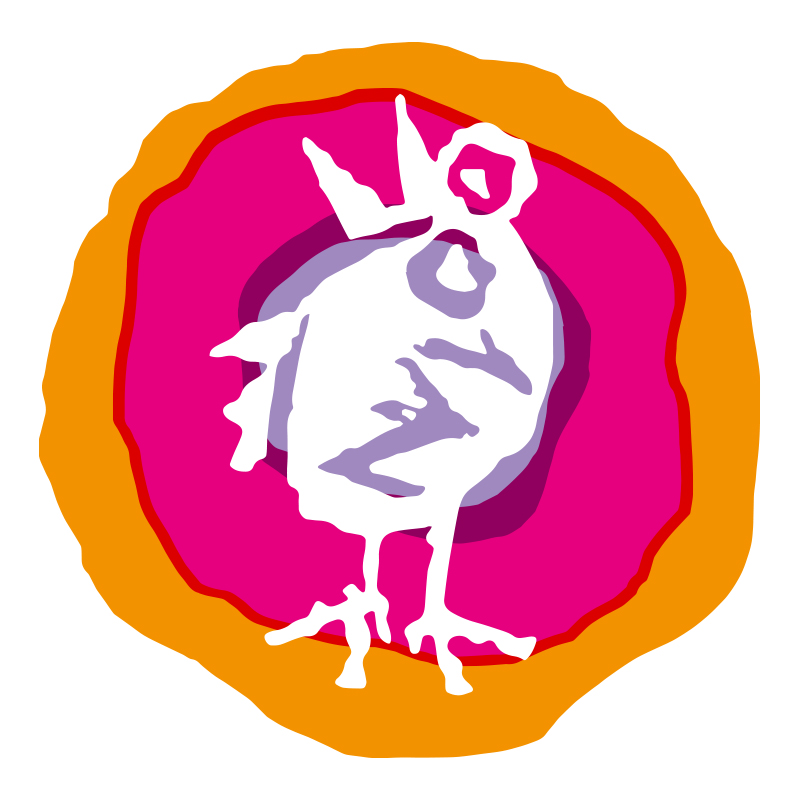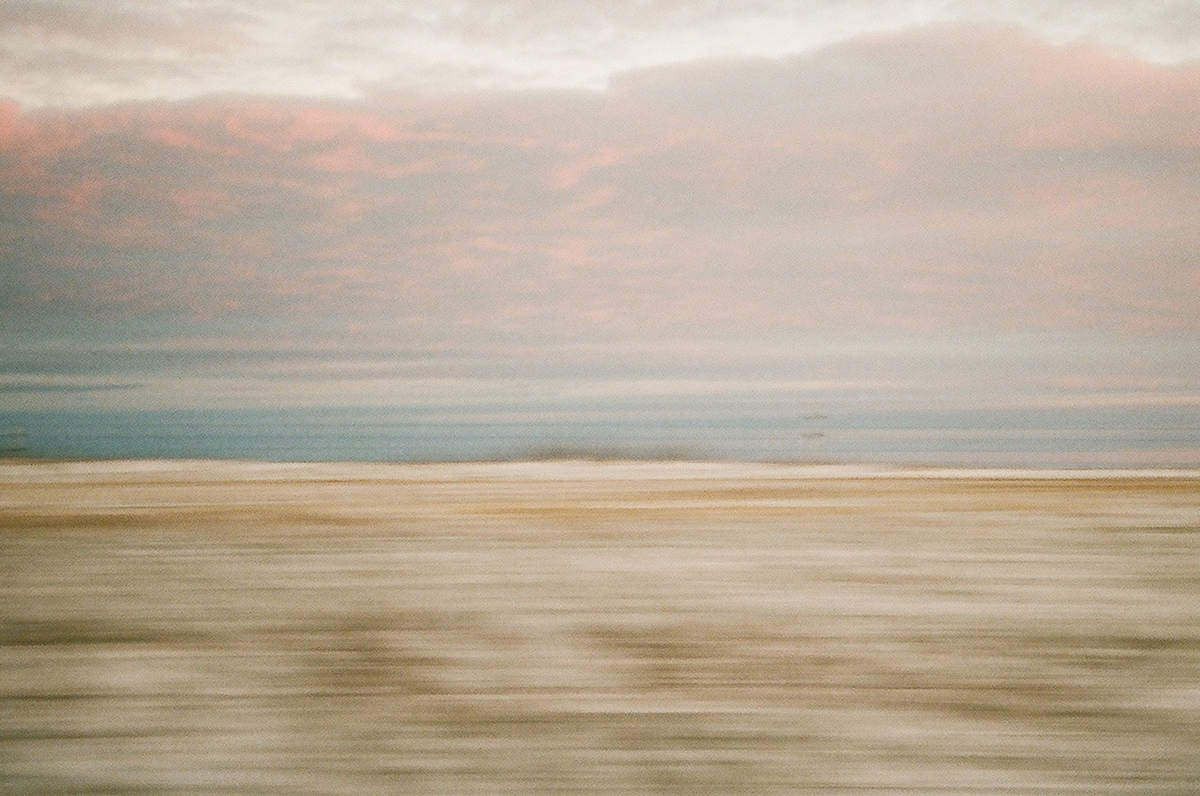There were thousands of them. Millions maybe. All across the sky, billowing around like some dusty gold and yellow snowstorm. They filled the air, running the line of the highway for miles. Ten miles. Twenty miles. Lou couldn’t tell anymore. The desert passed by the window, a blur of sand and rock and scrub. If it hadn’t been for the odd pothole that caused the bus to shudder on its shot suspension she could’ve imagined they weren’t really moving at all. Just an endless loop of creosote bushes, aimless wire fencing and buckshot billboards being hauled slowly past the window. And always the frame of a sullen blue sky now filled as if some giant pillow had burst somewhere.
She’d tried to wake Bob to show him. Slumped in the window seat, head against the glass, eyes closed behind the white plastic framed shades she’d bought him at the Dollar Tree in Amarillo. The brim of his straw hat, which was actually weaved out of plastic thread when you looked up close, pulled down. The hat had only been a dollar too but he’d stolen that from a spinner rack outside a drugstore in Albuquerque. One thing she was beginning to realise was that Bob was one cheap bastard. So there he was asleep, drunk on the last of the fifth of whiskey they’d been carrying for emergencies, headphones in, the distant sound of the Rolling Stones or maybe the Dead leaking out, draining the battery on their phone. And missing the only thing worth seeing since the bus took off from Phoenix that morning.
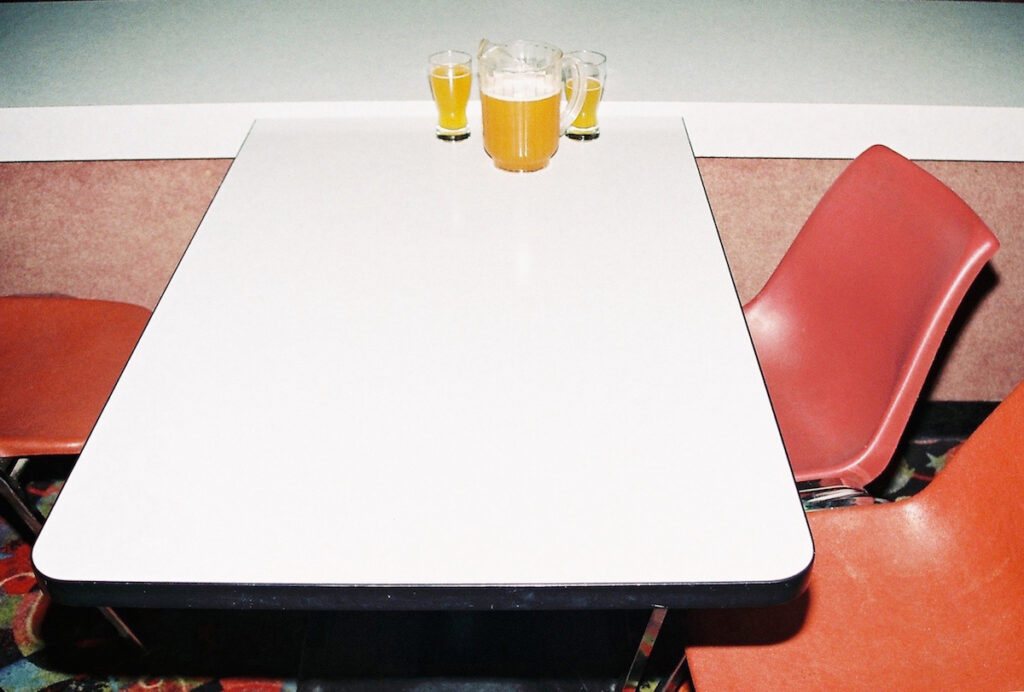
Lou leaned out of her seat and looked down the aisle. Past the backs of heads grown so familiar she’d begun to convince herself that these strangers were friends. Past the driver with his red San Francisco 49ers baseball cap and his fingerless black leather gloves and out through the windshield at the relentless white lines and the trucks and the cars and the motorcycles that all had some place to be going and wasn’t that the least that anybody could want in the world. And the sky up ahead was full of these things and she leaned back and smiled and was full of wonder.
“Monarch butterflies.” The old lady across the aisle pointed an elegant finger towards the window, “and some Painted Ladies mixed in. But mostly Monarchs. They fly up from Mexico in the spring then back again in the fall. They chase the weather. Who can blame them?”
“It’s beautiful.” Lou said.
“I guess it is.”
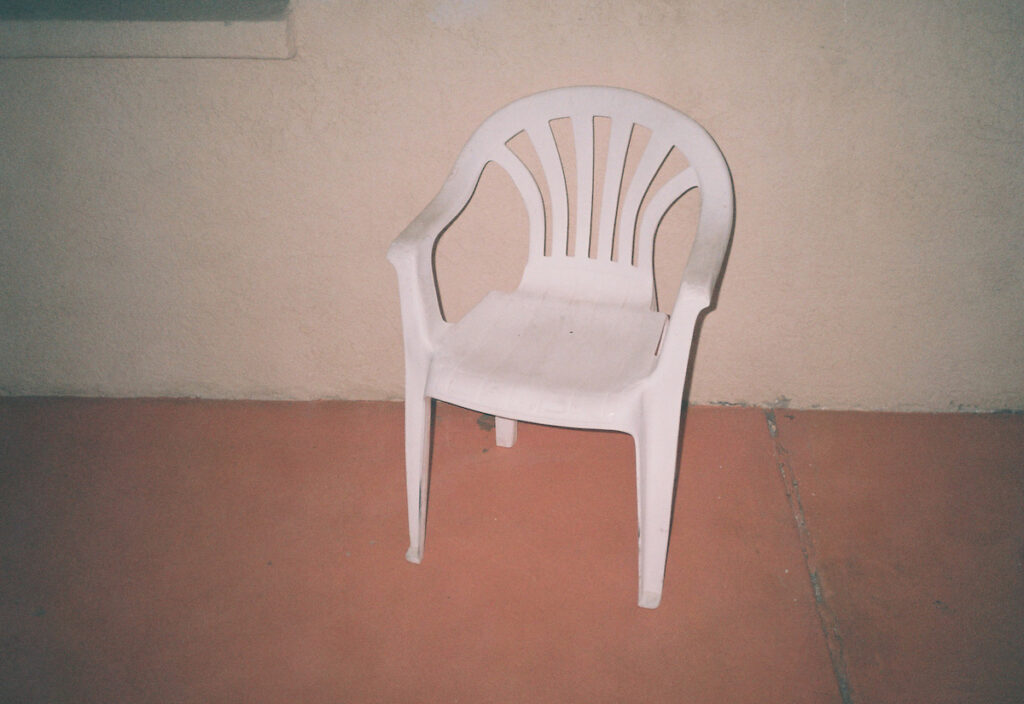
Somewhere outside of Flagstaff Lou and the old lady had got to talking. Some time late into the night after Bob had been cursing out his buddy Steven on the phone for not being able to meet them at the time they’d agreed on only two days earlier. Steven with the map and the pickup truck. Steven with the plan. Bob had hung up and then refused to answer any of Lou’s questions about the conversation. Instead he’d insisted that everything was fine and had peeled open the whiskey, put in his headphones with the volume ramped up so high it was like he had his head in a swarm of bees, and hunched himself up against the window as far away from her as he could get.
The old lady had leaned across the aisle and tapped Lou on the arm and introduced herself as Lily and started on some small talk about how she was heading home to San Diego after seeing her granddaughter in Oklahoma City and how her son owned a restaurant, or was a cook or was a busboy, Lou wasn’t quite sure. The conversation had smoothed Lou’s mood the way a cool iron can make even a crumpled silk dress seem almost as good as new. And Lou had told her about Bob and his friend Steve who had this idea that they were going to be able to find a Spanish galleon full of gold and pearls that had been lost in the desert hundreds of years ago when the Colorado River had suddenly drained away to almost nothing. Saying it out loud had sounded crazy but Lily had smiled at her and told her it was just about the most exciting thing she had ever heard.
“Buried treasure. Imagine that,” she’d said. And her eyes had sparkled in the darkness of the bus.
At the rest stop at Gila Bend, Lou left Bob sleeping and went with Lily to get coffee. They sat on a peeling wooden bench and smoked cigarettes and Lou noticed that the greyhound decal on the front of the bus was spattered with so many dead butterflies it looked more like a Dalmatian. A crow was picking at the insects that had been trapped in the radiator grille of a nearby parked car, leaving the wings to drift away like discarded candy wrappers.
“A lot of those butterflies don’t make it”, said Lou, “It’s sad.”
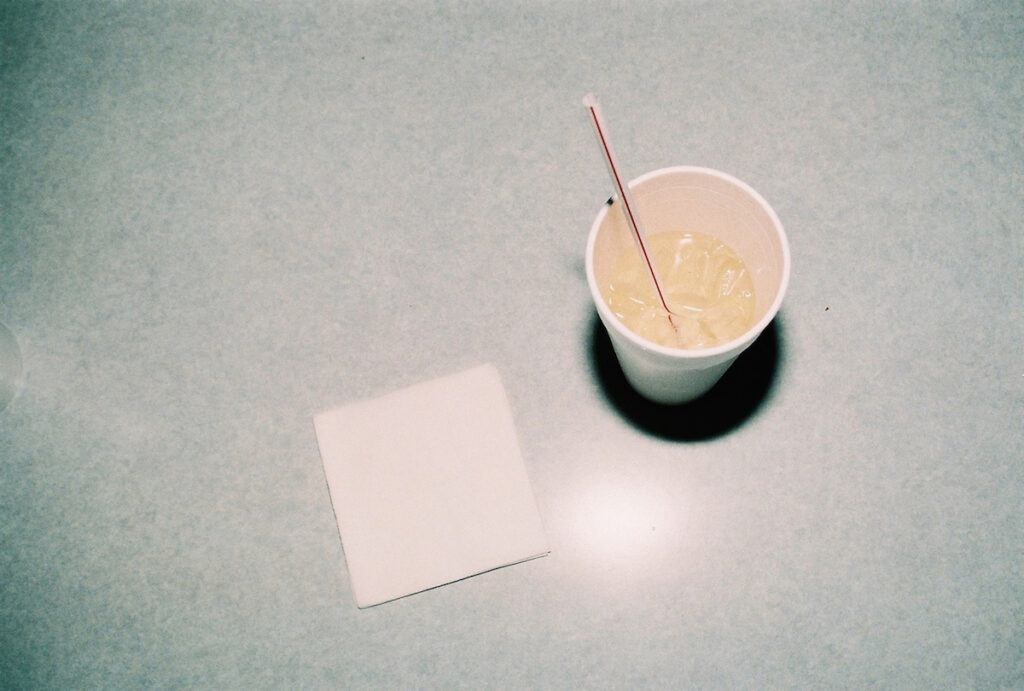
Lily sipped on her coffee leaving a smear of lipstick on the Styrofoam cup. “But some of them do. And, you know what? At least they tried.”
Lou dropped her cigarette into the dregs of her coffee. She watched some kind of eagle arcing across the sky, shading her eyes with her hand until the bird was too far away to see, “You think we’re going to find the boat?”
“I don’t know dear. I hope you do. I really do.”
Lily took a casino ballpoint out of her purse, wrote down a number on a scrap of paper and handed it to Lou. “But if you don’t, and you’re still looking for a place to go, and you find yourself in San Diego, you give me a call. And if you do find it… Well you give me a call too and tell me all about it.” She gave a little old lady laugh, then nudged Lou that the driver had started the bus and that they better get going.
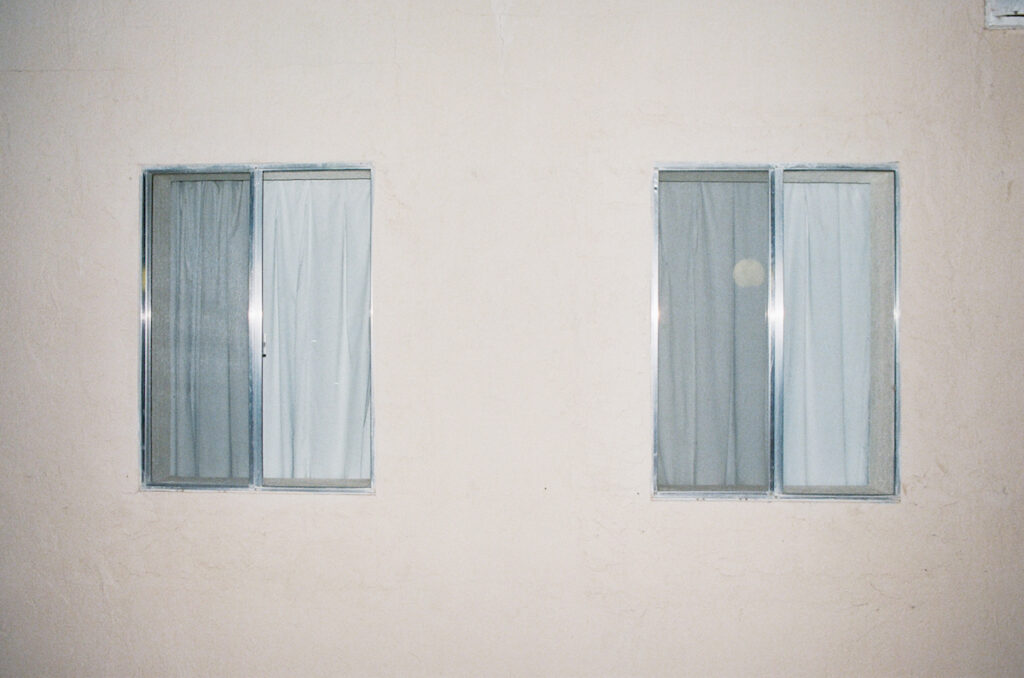
Lou walked across the concrete and stopped at one of the cars to pick a dead butterfly out from where it had caught under the wipers. Its body was broken but its wings were intact. A windowpane of orange and black and white, wider than a dollar bill. She carefully carried the insect onto the bus and slipped it inside the still blank pages of the journal she’d been meaning to start.
Two hours later and they’d climbed off the bus at Yuma and Lou had said goodbye to Lily, who had held her hand just a little too long with fingers as cold and as delicate as fine china, and had told her how pleased she’d been to make her acquaintance. And they’d headed to the closest bar to the bus station to get out of the heat and Bob had finally told her that Steve wasn’t coming to meet them until the following day. Or maybe it would be the day after that. His truck had broken down outside of Indio and he had to wait for his father to wire him the money so he could afford to get it fixed.
“We’ll just have to find a motel or something” Bob had said and that was fine with Lou who, after 25 hours of travelling, was more than ready for any kind of bed at all.
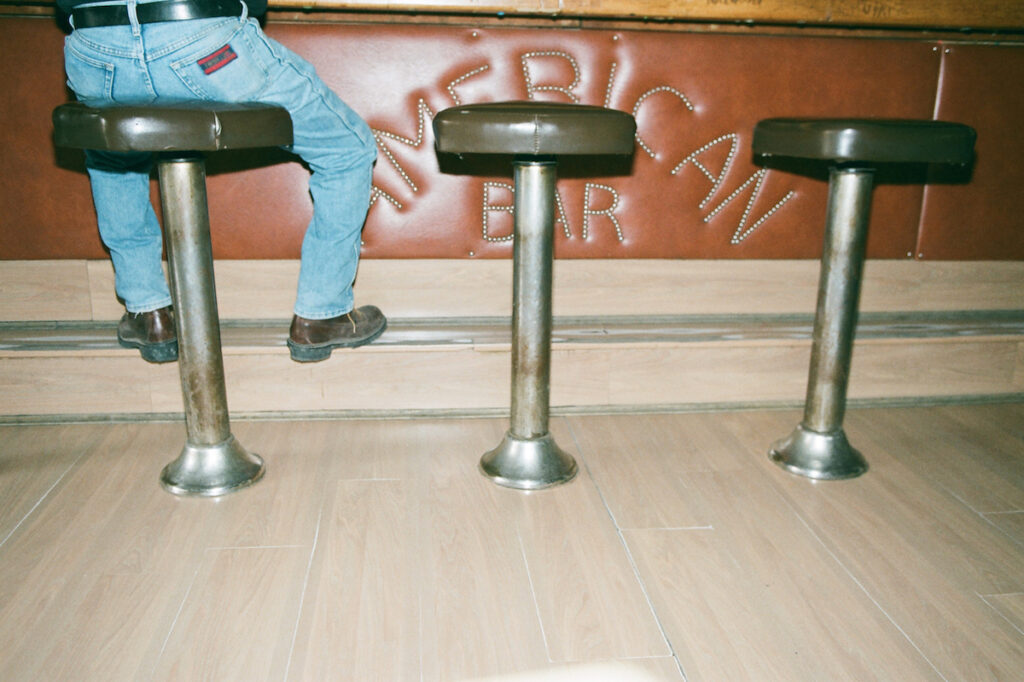
They sat in a booth and Bob drank Coors and Lou drank whiskey and they ate burgers and fries and she asked him to tell her about the lost ship again but the more questions she asked the vaguer he became as if the closer they’d got to it the further away they really were.
There was a framed painting of a desert scene hung above the booth. A silhouette of a cowboy caught on the horizon, a mountain, a railroad track, some kind of shack and a pair of horses tied to a dead tree. The perspective was all wrong. Lou couldn’t work it out at all. She thought about asking Bob what he made of it but he was sitting there with his plastic shades on and his stupid hat, rolling his beer bottle in his hand and singing along to some maudlin country song that was playing on the jukebox. He hadn’t said a single word to her for at least ten minutes. Ever since he’d admitted, for the first time, that Steven’s map to find the ship had been drafted from a freeze-frame off a TV show on the History Channel and not from the supposed ‘extensive research’ she’d been led to believe.
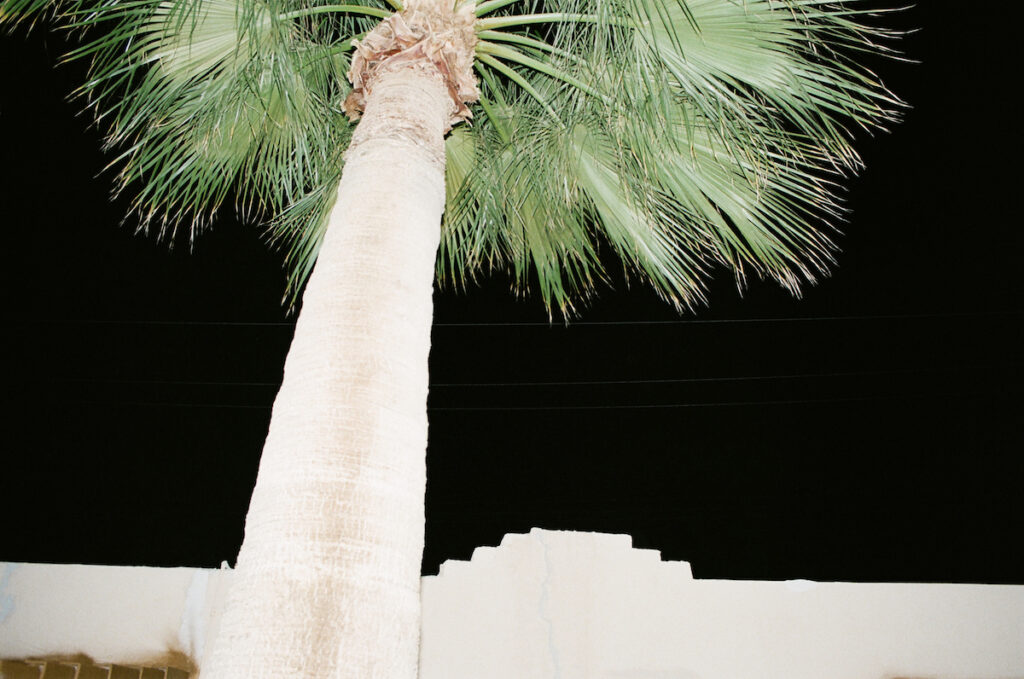
It was dark by the time they’d left the bar. Bob was drunk and singing another country song that she didn’t recognise. A hundred yards down the road was a neon motel sign and they headed towards it. Bob with a small green canvas rucksack slung on his shoulder, Lou with the cardboard suitcase that was patched up with duct tape. A length of blue nylon rope cut from a washing line where the handle should have been dug into her fingers as she hauled it along, switching it from palm to palm.
“I told you you shouldn’t have packed so much stuff” said Bob, but he didn’t offer to help her carry it, he just walked on ahead.
Up above, the motel’s neon sign flashed MIRAGE but somebody had ripped a hole in the canopy above the door so the M and the I were missing and it just read RAGE. The place looked like shit as far as Lou could tell. Blistered paint and cracked cinder block. A stained sun lounger by the door with its foam guts spilling out. A concrete pot with a hundred cigarette butts planted around a withered bush. The ‘vacancy’ sign hung in the window was bleached and faded and beneath it a crust of flies lay trapped between the glass and a yellowing net curtain. She was going to suggest they try somewhere further along the road but Bob was already inside and talking to the desk clerk. He came out with a key on a giant wooden fob and a photocopied plan of the building.
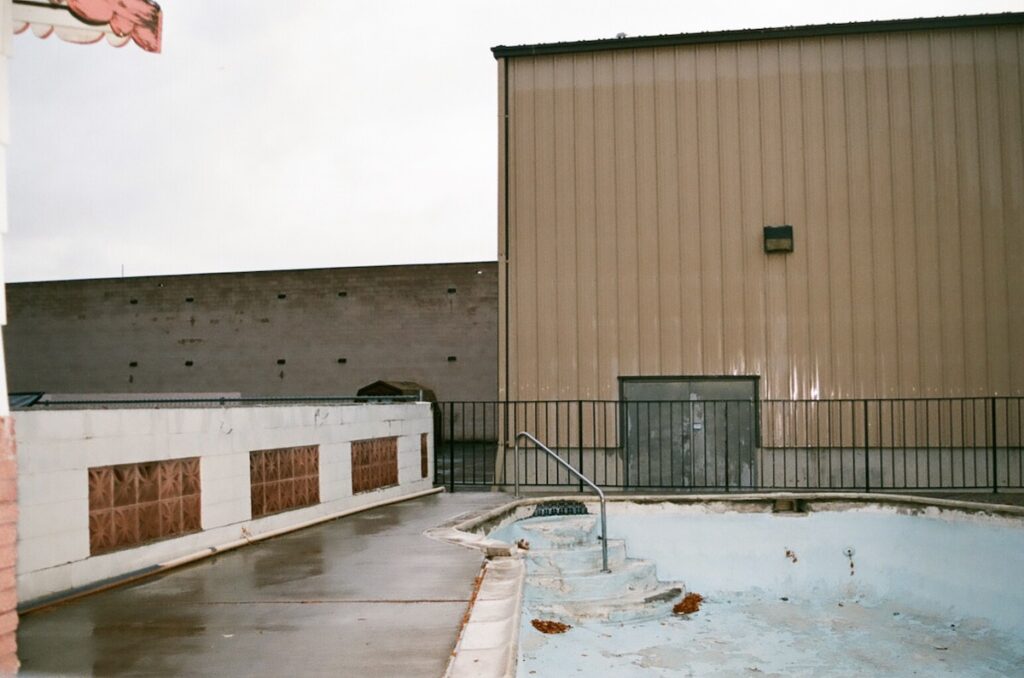
They passed the empty swimming pool twice before Bob had found the right room, turning the plan around and around in his hand like he was panning for gold. She dumped her suitcase on the chair by the dresser and found the light switch. The walls were coral pink, the bedspread was yellow. A plastic framed photograph of a cactus hung on the wall above the television set. There was a sign on the bedside table that said ‘No Smoking’ but there were cigarette burns all along the edge of the dresser and holes in the carpet. Bob kicked off his boots and lay on the bed. He jabbed at the remote until the television screen lit up, found a sports channel and turned up the volume.
“It’s hot as hell in here,” he said, “Do you want to see if you can get the A/C running?”
Lou turned the dial until she heard the fan kick in. “I’m going to take a shower” she said.
The shower ran cold and the wafer thin bar of soap smelled of lemon dishwashing liquid. She dried herself as best as she could on a brittle white towel and then sat on the toilet seat, listening to the television drifting under the doorway. Eventually she walked into the bedroom. Bob was asleep. She turned off the television and then the light. She tried pulling the curtains together but a slant of yellow light still cut across the room from a gap in between them. She lay on the bed and stared up at the ceiling.
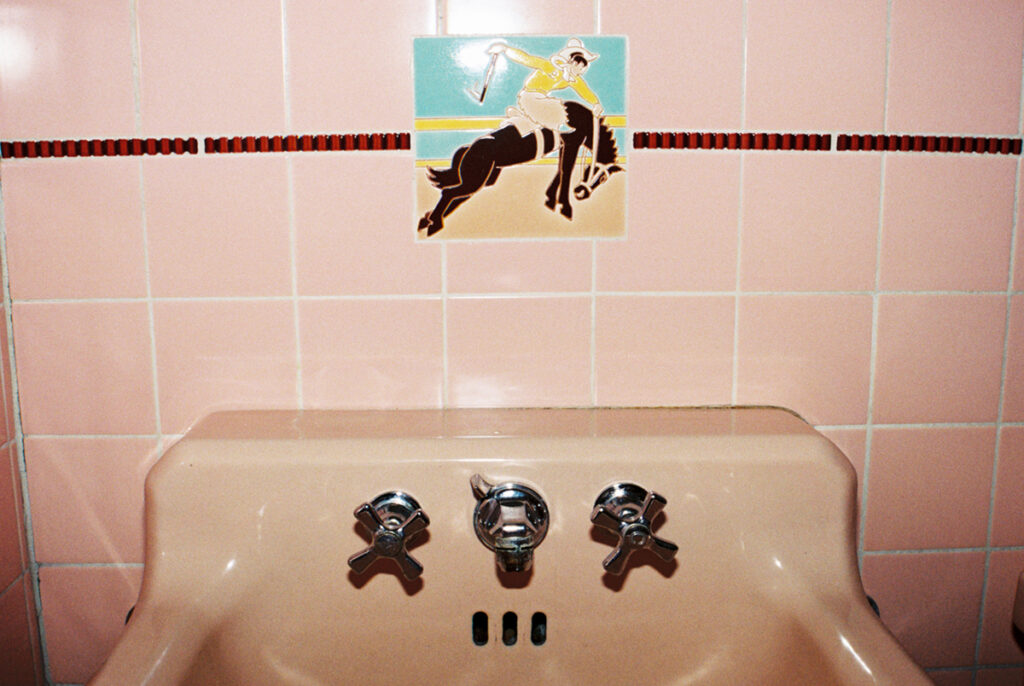
Bob woke with Lou pulling at his sleeve. “There’s something in the room”, she said.
She turned on the bedside lamp. Above them a hawk moth was skittering across the ceiling, as big as a hummingbird. Bob climbed up onto the bed. The moth dive-bombed towards the lamp and hammered against the shade, briefly beating time with the rattle of the air conditioner.
“Don’t kill it,” said Lou.
Bob chased the moth around the room until it briefly settled on the curtain.
“Throw it outside,” said Lou.
Bob crept towards the window with his hands spread out. He lunged forwards and clapped his hands together. The moth dropped to the floor and he picked up one of his boots and squashed it. He carried the insect by the tip of its wing and dropped it into the wastepaper basket.
“Now go back to sleep,” he said.
“I wasn’t asleep at all,” she said.
Bob lay on the bed and reached his hand towards her. A dusty silver smear of hawk moth scales caught the light, reminding Lou of the way your hand looks when you’ve been testing make-up in a department store. She turned away from him, switched off the bedside light and stared at the wall.
The air-con kicked in and out and soon Bob was snoring and together they beat time as loud as an old mechanical station clock. Lou climbed out of bed and dressed. She let herself out of the room and walked over to the swimming pool. She sat on a white plastic chair and lit a cigarette. In the distance she could make out the rumble of the interstate. All those cars and all those buses on their way to somewhere else. She unfolded the piece of paper that Lily had given her and looked at the phone number and wondered what the weather might be like in San Diego.
Words by Kirk Lake
Images by Lorena Lohr
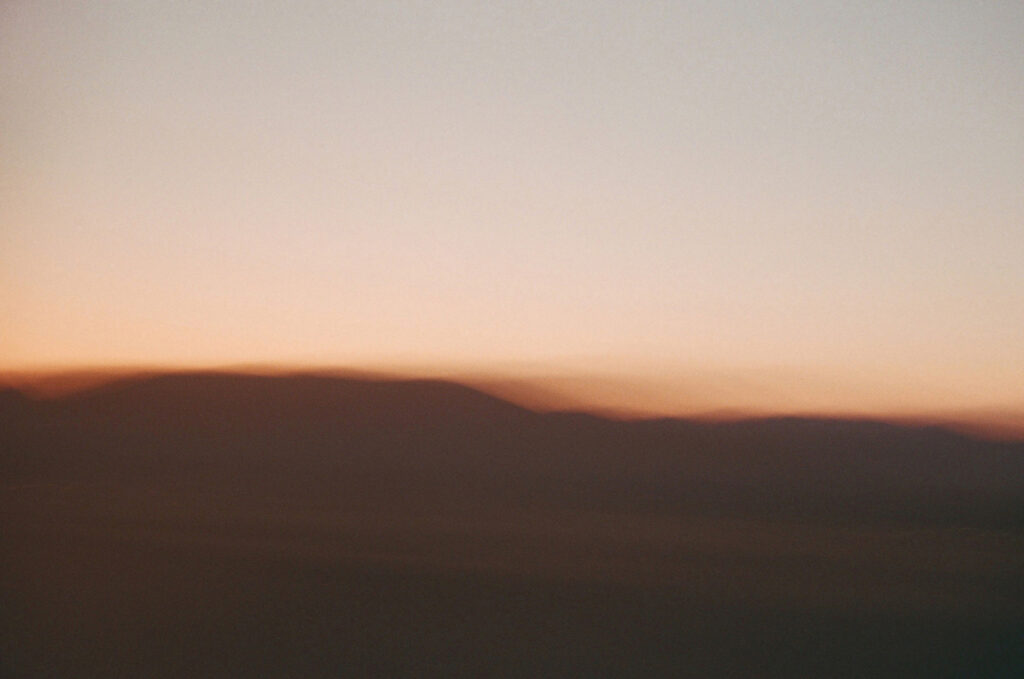
The Lost Ship of the Desert was first published in Lorena’s book, Tonight Lounge, printed by Cob Gallery in 2019.
Both Lorena Lohr and Kirk Lake were published by Rough Trade Books as part of the first series of Rough Trade Editions in 2018.
Signed copies are available of their pamphlets…
Rough Trade Edition No.3 – Blue Springs by Lorena Lohr
Rough Trade Edition No.10 – The Last Night of the Leamington Licker by Kirk Lake
KIRK LAKE was born in Leamington Spa. He has written numerous books and films. On screen appearances include the archivist in the Nick Cave film 20,000 Days on Earth, the journalist in The Dali and the Cooper and Stoker in the forthcoming film-noir The World We Knew. In the 1990s, he released a series of pioneering spoken-word recordings including the boxing themed album The Black Lights.
LORENA LOHR is a photographer primarily interested in documenting small towns in the American Southwest. Her latest book, Tonight Lounge, was published by Cob Gallery in late 2019. She is the co-founder of Scenic Views, a different kind of interiors magazine.
